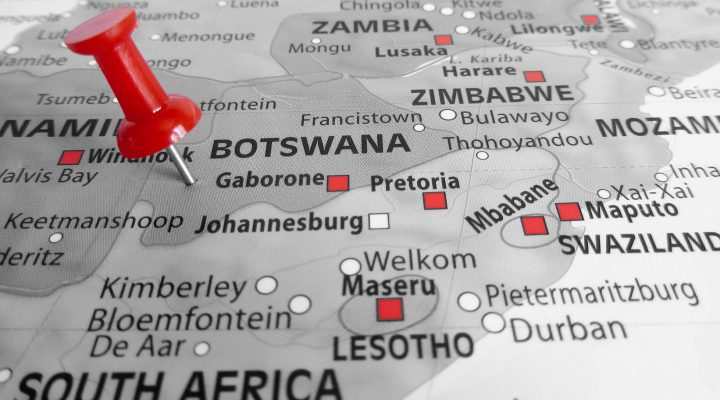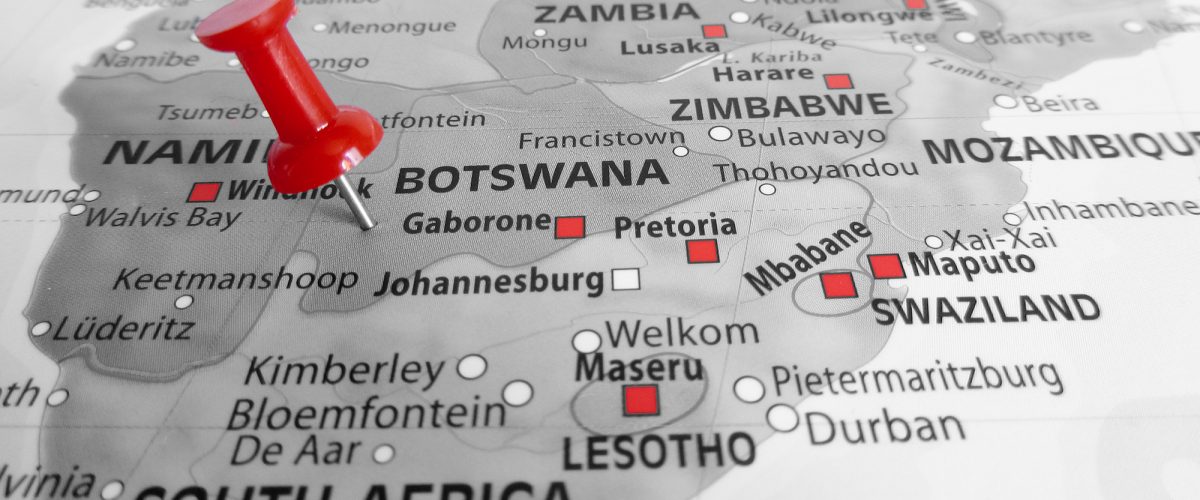The tiny nation of Botswana — with 2.6 million people — is arguably the U.S.’s most reliable diplomatic and military friend in Africa.
Now, a booming economy driven by diamond, copper and rare earth minerals is attracting U.S.-educated Baptist, Pentecostal and evangelical pastors who left Botswana for the U.S. in the 1980s and younger ones who went to the U.S. more recently to return home for active ministry and semi-retirement.
“I couldn’t struggle living my 70s in New Jersey when I can enjoy thrilling all-year sun and part-time ministering to one of the world’s youngest populations in my home country Botswana,” said Titus Moloi, 60, a Baptist cleric who left Botswana in 1982, studied in New York and has returned home to continue ministry in his home country as he moves toward retirement.
Botswana, one of Africa’s driest nations, is also one of its sunniest due to its semi-arid topography.
In the 1980s, Botswana was one of Africa’s poorer countries and many theology students left for the U.S. and England. But good democratic governance, zero tolerance for corruption, plus explosive diamond riches have made it one the most financially successful countries in Africa today, and one of the few countries in Africa with a per-capita GDP matching China’s in 2019.
“Africa’s miracle,” as Botswana is colloquially called, is one of the few countries on the continent wealthy enough to send many students to study in the U.S., UK or Canada without needing foreign scholarships as most poor African students do. Hence some of Botswana’s pastors trained in the U.S. are trooping back home to serve — helping buck the trend on a continent where thousands of young people flee to the U.S. and Europe and most never want to return at all.
Some of Botswana’s pastors trained in the U.S. are trooping back home to serve — helping buck the trend on a continent where thousands of young people flee to the U.S. and Europe and most never want to return at all.
“It’s an interesting counter narrative that Botswana’s theologians are doing coming back home,” said Pastor Aida Duma, a Pentecostal cleric in Gaborone, the capital of Botswana. Theology students from neighboring countries (Zimbabwe, Zambia, Congo and Mozambique) hardly ever return from the U.S. when they go there to study in Bible schools or universities, she noted.
“It’s seen as a serious downgrade on one’s prospects to qualify in the U.S. as a pastor and return home to serve in Africa. Even students sent to study theology in the U.S. on the fixed promise they’ll return to serve home prefer to flout the agreements and stay in America,” said Duma, who studied in Ontario, Canada, and quickly came back home two years after graduation. “Hence you see some pastors applying for asylum to stay longer in the U.S.”
There are two kinds of Botswana theologians coming home: First, the elderly who left in the 1980s, and second, the young ones leaving in the last decade.
The elderly are enticed by the chance to return to Botswana, a country where banks, education, public health care and elderly welfare works just like much of the U.S.
“For the elderly pastors who left for the U.S. in the ’80s, it’s a dream to return to Botswana, retire and pass on ministry skills to young theologians at home,” said Pastor Moloi, the older returnee. “It’s so pleasant to be back home.”
Pastor Saki Gwetgka, 39, is a Pentecostal cleric who studied in California but returned home to serve in Jwaneng, a Botswana town that is home to the world’s richest diamond mine.
For the young, the reasons for returning from the U.S. to Botswana center mainly around the compelling prosperous economy at home, Gwetkga said. Young Botswana pastors easily become a part of a network of returnees. And they sometimes find opportunities to serve members of the U.S. military and industry in the country.
“It’s not just diamonds and a sparkling economy luring us back,” Pastor Duma said. “It’s relatability — a chance to gain pastoral and related jobs in U.S.-supported organizations and charities. “We know the U.S. culture already, so we returnees have first mover advantage.”


